Dealing with refund requests can often feel like navigating a tricky situation, but it's essential to approach them with clarity and professionalism. In this article, we'll explore effective strategies for communicating a denial of a refund request while maintaining a positive relationship with your customers. You'll discover how to craft a response that is empathetic yet firm, preserving your company's policies. Ready to learn how to handle these conversations with confidence? Let's dive in!

Clear Reason for Denial
A refund request denial may arise due to specific policy violations, typically outlined in the sales terms, such as clearly marked non-refundable items. For example, electronics purchased during a clearance event may not qualify for returns, especially within a set period, often 30 days from the original purchase date. Customer service records may indicate that the item was opened and used, which can fall under another reason for denial. Additionally, if the refund request is submitted after the allowed timeframe, this can result in an automatic decline based on company policies, reflecting a commitment to uphold consistent practices for all customers.
Terms and Conditions Reference
A careful examination of the refund request reveals that it falls outside the established terms and conditions set forth at the time of the purchase. According to section 4.2 of our policy, items purchased on sale are non-refundable and must be returned within the specified 30-day period for exchanges only. Additionally, the item in question, a premium electronic gadget, has been used and shows signs of wear, which also violates our guidelines regarding the condition of returned items. As stated in our user agreement, all refund requests must be accompanied by original packaging and receipt to qualify. Regrettably, based on these stipulations, we cannot approve the requested refund.
Empathetic Tone
Refund requests can often be challenging for both customers and businesses. Customers may seek refunds for various reasons, including product dissatisfaction, defective items, or service-related issues. Businesses must maintain a fair policy while ensuring customer satisfaction. A denial of a refund request can lead to disappointment, so it is crucial to convey empathy and understanding. Communication should emphasize the reasons for the decision while reinforcing the value of the relationship with the customer. Providing alternative solutions, like exchanges or store credit, can help mitigate frustration. Ultimately, the goal should be to address the concerns of the customer while adhering to company policy.
Alternative Solutions
Currently, many businesses face challenges regarding refund requests due to company policies or financial constraints. Alternative solutions can offer customers viable options. Store credit can provide flexibility while maintaining customer satisfaction, allowing them to purchase other items or services. An exchange can benefit both parties, enabling customers to choose a different product that better meets their needs. Partial refunds can also be considered, where customers receive a portion of the original purchase price, addressing their concerns while preserving the company's financial stability. Additionally, offering a discount on future purchases can incentivize customers to continue shopping with the brand. Robust communication, emphasizing empathy and understanding, can enhance the customer experience and foster loyalty, even when refund requests cannot be fulfilled.
Contact Information for Further Assistance
Many organizations experience refund requests from customers, often leading to disputes over policies and expectations. Refund policies, which are outlined in terms and conditions, typically specify the time frame for requests and acceptable reasons for refunds. Clear communication regarding the decision to deny a refund request is critical. Accurate record-keeping, including transaction details and customer correspondence, aids in ensuring transparency and consistency. In cases where denials are necessary, companies often offer alternatives such as store credit or exchanges, ensuring customer satisfaction is still a priority. Providing contact information for further assistance encourages ongoing communication, helping to maintain positive customer relations even in challenging situations.

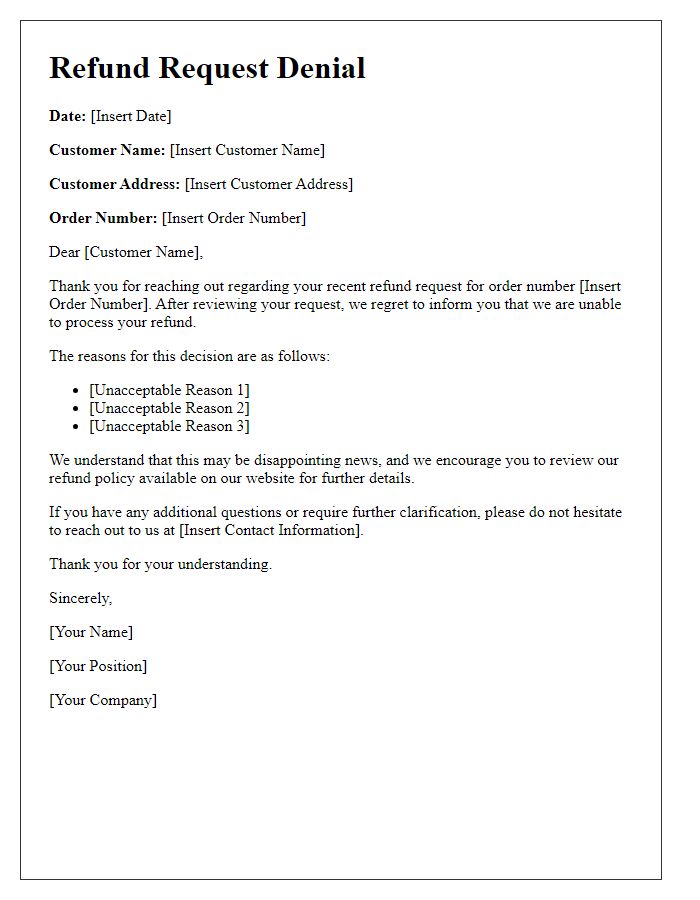
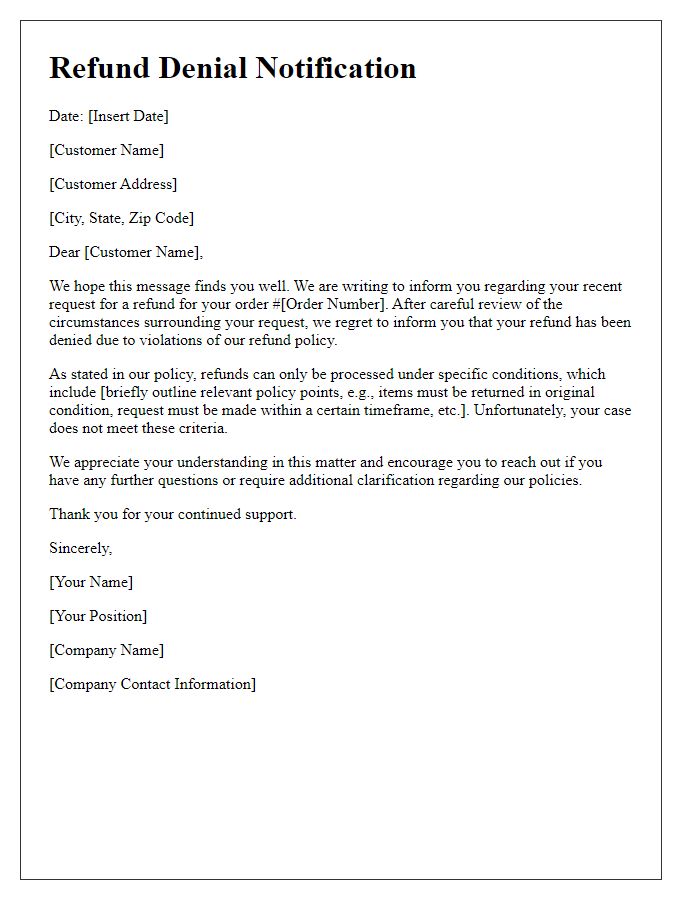
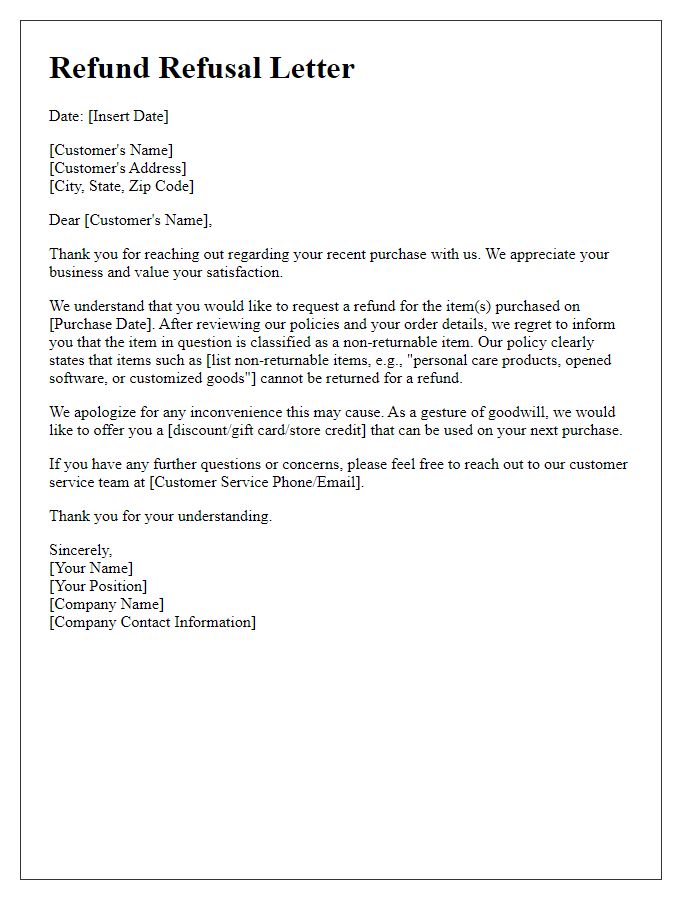
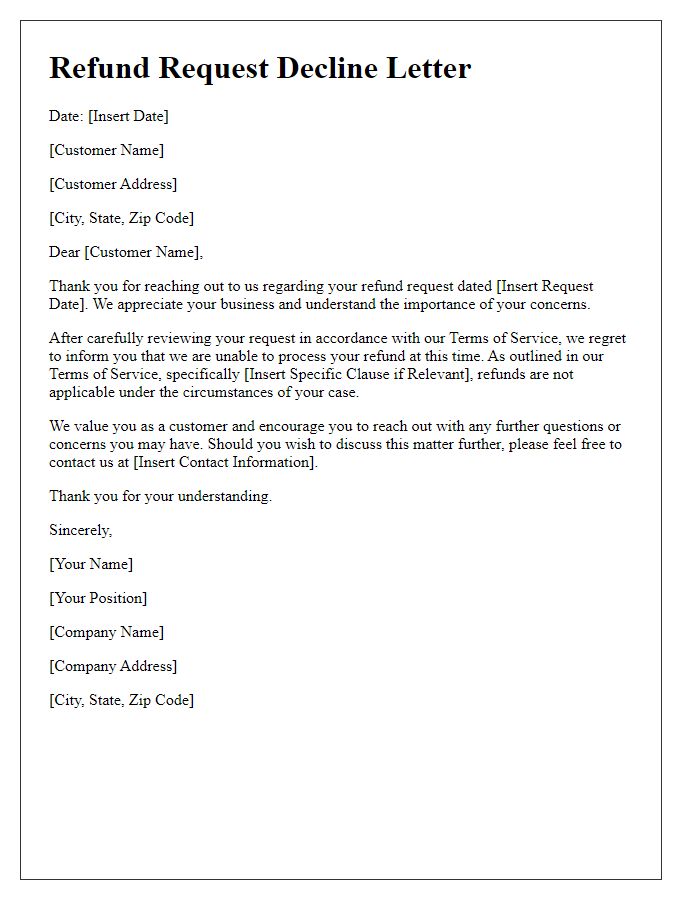
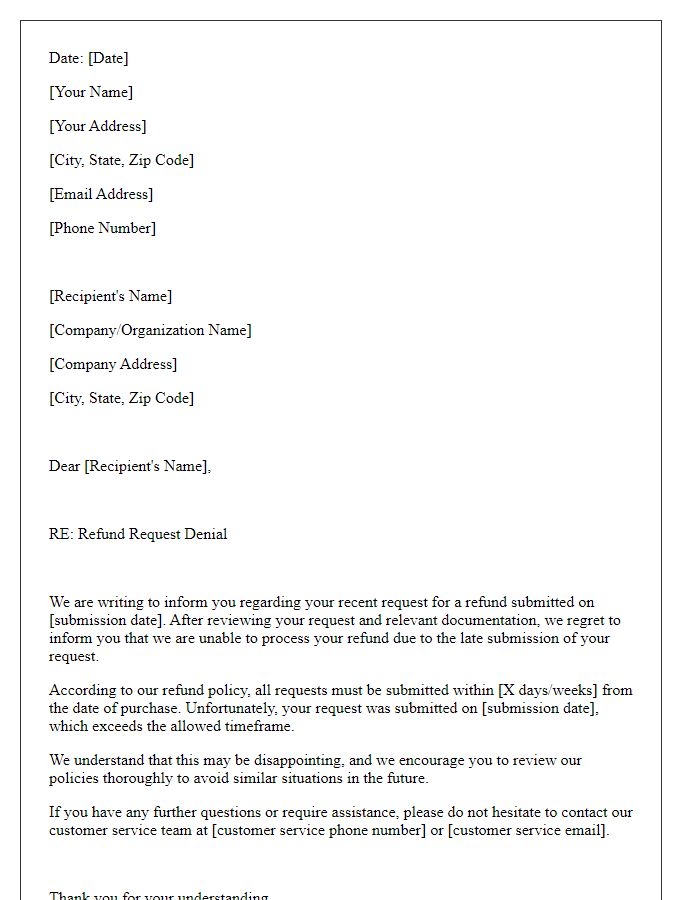
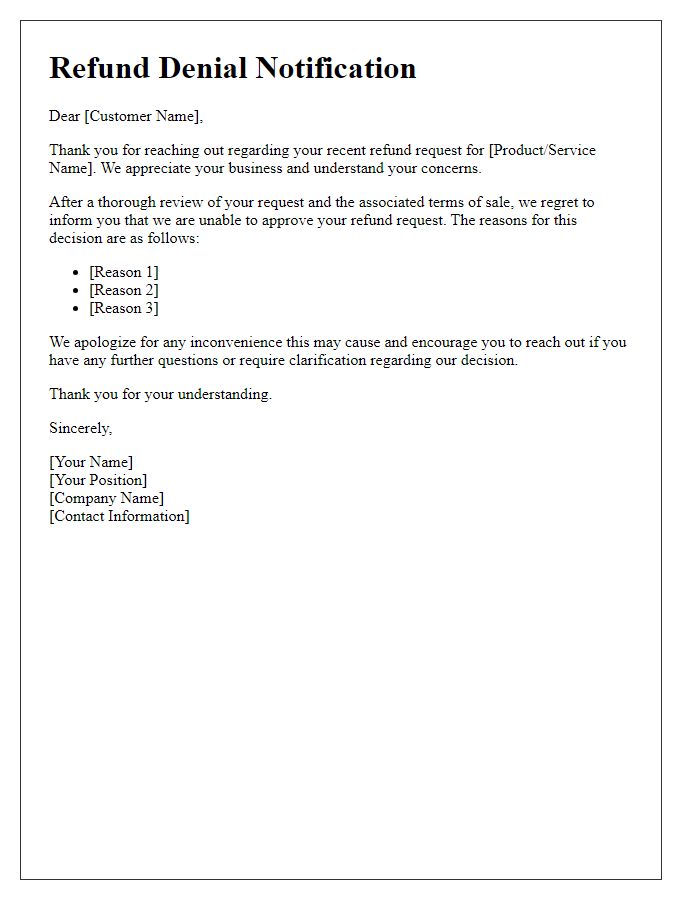
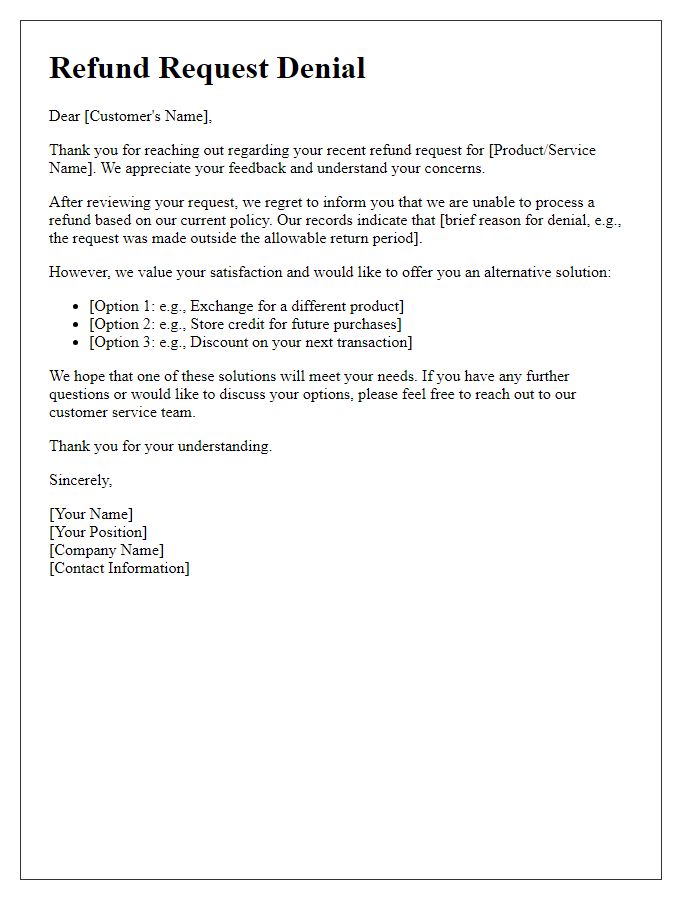
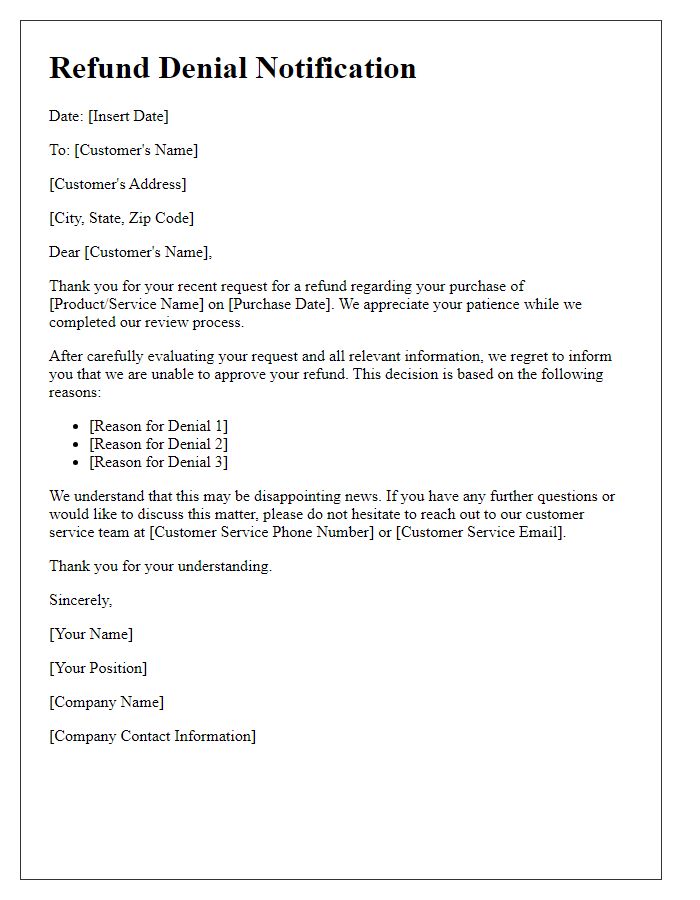
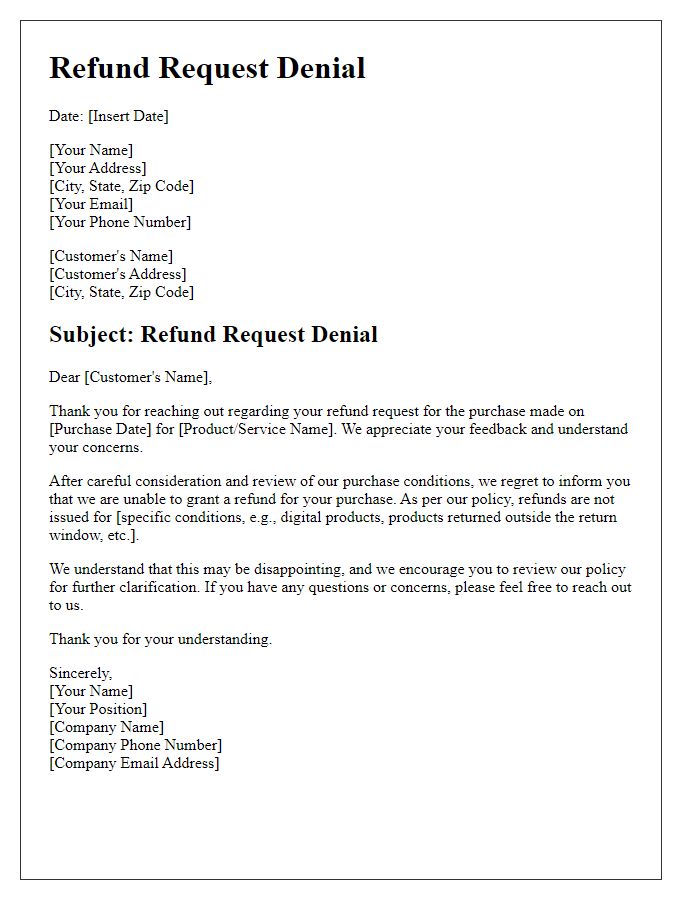
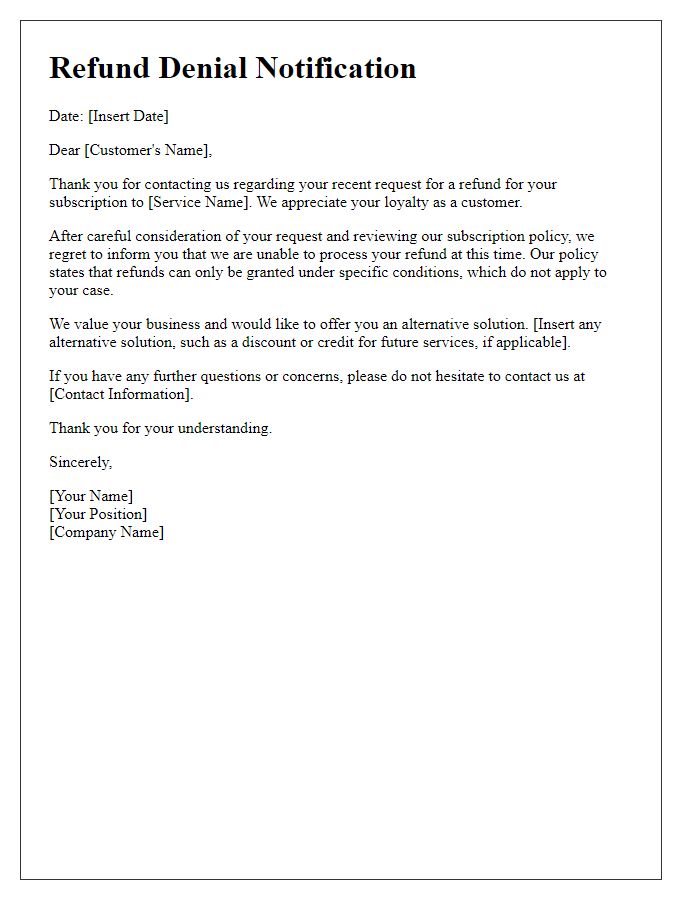


Comments